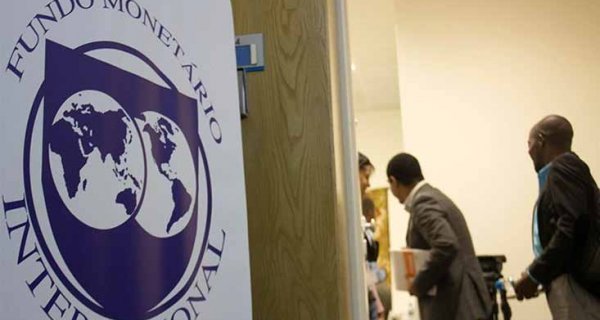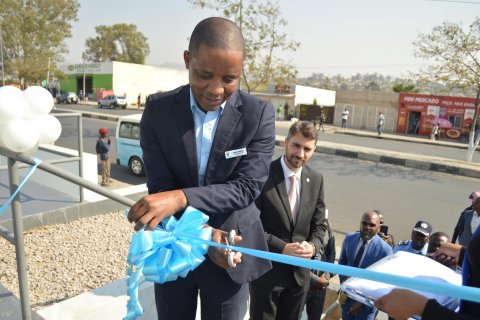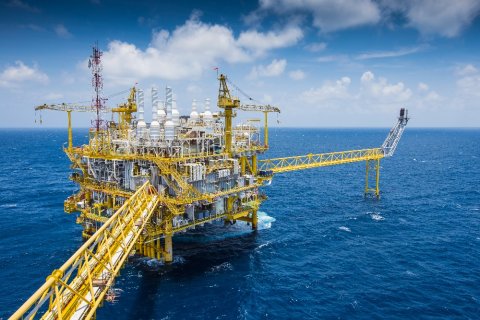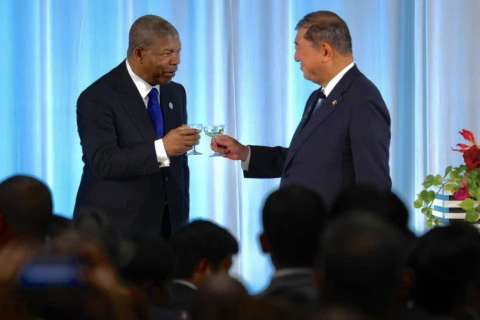Marcos Souto was speaking to Lusa one day after the disclosure of the recommendations made under Article IV, the annual analysis of Angola's economy, under which the IMF praised the reforms and defended "ambitious and growth-friendly adjustments" to meet the targets medium-term budget and debt.
“It is very important that Angola continues with a prudent fiscal trajectory and a sustainable debt”, he said, noting that, in 2022, the non-oil primary deficit was greater than expected.
“Basically associated with capital expenditures that were not within the original budget, as well as more spending on fuel subsidies. These expenses, which are not in the budget, need to be contained. In all countries, what we advise is that all these expenses go through the normal budget process, after approval by the assembly, to be implemented by the Government team”, he stressed.
Only in very extemporaneous, very exceptional cases “may there be issues that require an expense to be approved outside the budget”, said Marcos Souto.
“But these cases should be an exception and not a rule, this fiscal issue is important, in this context we also encourage the continuation of reforms aimed at improving the efficiency of public management, as well as ensuring an increase in revenues”, reinforced the economist.
Marcos Souto underlined that the IMF continues to see Angola "with good eyes", encouraging solid policies and commitment to reforms.
He also underlined that, despite the financial assistance program having ended, it is important for the Government to pursue reforms to strengthen revenue administration and public finance management, noting that public companies must be economically viable.
Regarding the intention announced on Thursday by the president of the Institute for the Management of Assets and State Participations (IGAPE) to transform most public companies into public limited companies, to improve accountability, he considered it positive, but does not solve the problems.
“It is important to ensure that they are economically viable”, are restructured and have a solid financial position, including to maximize the amount to be received through the privatization program that has been extended until 2027, stressed the expert.
Regarding this program – started in 2019, with 195 employees, a number that has undergone changes – he considered that it was from the beginning “quite ambitious, as companies begin to prepare to be privatized, there are situations that need to be resolved ”, he said, noting that larger assets are also more complex.
“It also makes no sense to be selling companies quickly, in any case, for any amount, it makes sense to ensure that they are in the best possible shape to be privatized, ensuring that any pending legal issue is resolved”, stressed the official.
Among the assets to be disposed of, in whole or in part, are the air carrier TAAG, the oil company Sonangol and the public insurance company ENSA, among others.
Asked about the withdrawal of fuel subsidies, he indicated that the Minister of Finance is discussing the issue with the World Bank and the IMF itself.
“We've always seen these subsidies as causing more distortion than support. There are a number of people who benefit from these subsidies and who could effectively pay more. We think it makes sense to remove subsidies while ensuring that there is social protection to protect the most vulnerable,” said Marcos Souto.
Angola is one of the countries with the cheapest gasoline in the world, but the subsidy weighs on public accounts, as Angola, which disputes with Nigeria the place of largest oil producer in Africa, imports around 80 percent of the fuel it consumes.
In the report released on Thursday, the IMF board of directors recommended increased mobilization of non-oil revenue, strengthening tax revenue and public finance management, and reforming public enterprises.
“These efforts, along with expenditure rationalization, will create the necessary budgetary space for public investment and targeted social spending,” according to a press release.
The Fund's analysis follows the finalization of the financial adjustment program that was in force until December 2021, and maintains the Angolan economy's growth forecast of 3.5 percent this year and 4 percent in the medium term, contrasting with the less optimistic forecasts of most analysts, who estimate a slowdown to around 1 percent this year.
"Inflation should continue its downward trajectory, reaching single digits in 2024", predicts the IMF, adding that the return to the budgetary adjustment envisaged in this year's State Budget "is necessary to meet the medium-term budgetary and debt objectives term and protect against debt vulnerabilities".
Regarding the ratio of public debt to Gross Domestic Product (GDP), which has been falling as a result of economic growth, increased oil revenues and the improvement in the kwanza exchange rate, the IMF expects that this indicator will have improved , last year, 17.5 percentage points to 66.1 percent, and continue to improve to 64.1 percent this year.
Taking advantage of the improvement in most economic indicators, which show the way out of the crisis of recent years, the IMF also recommends that Angola protect itself from external shocks by improving the internal environment, namely in strengthening governance and creating conditions that attract investment.







